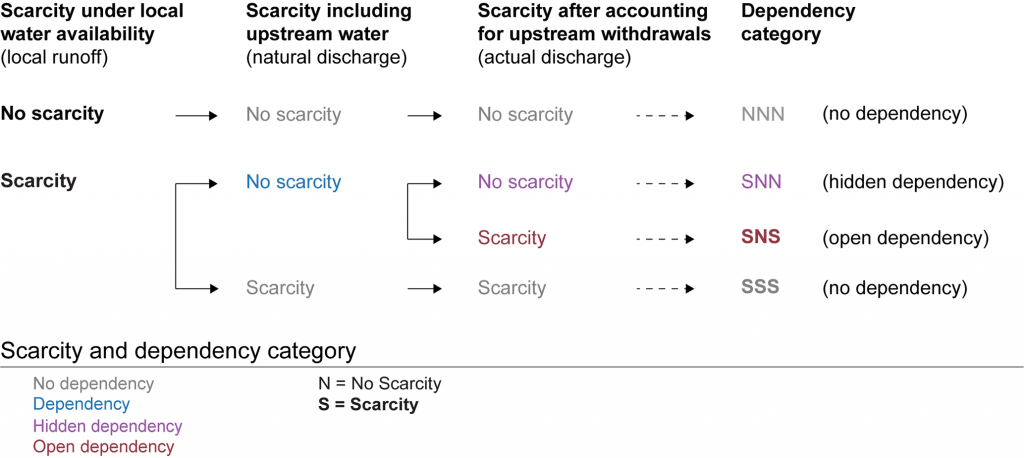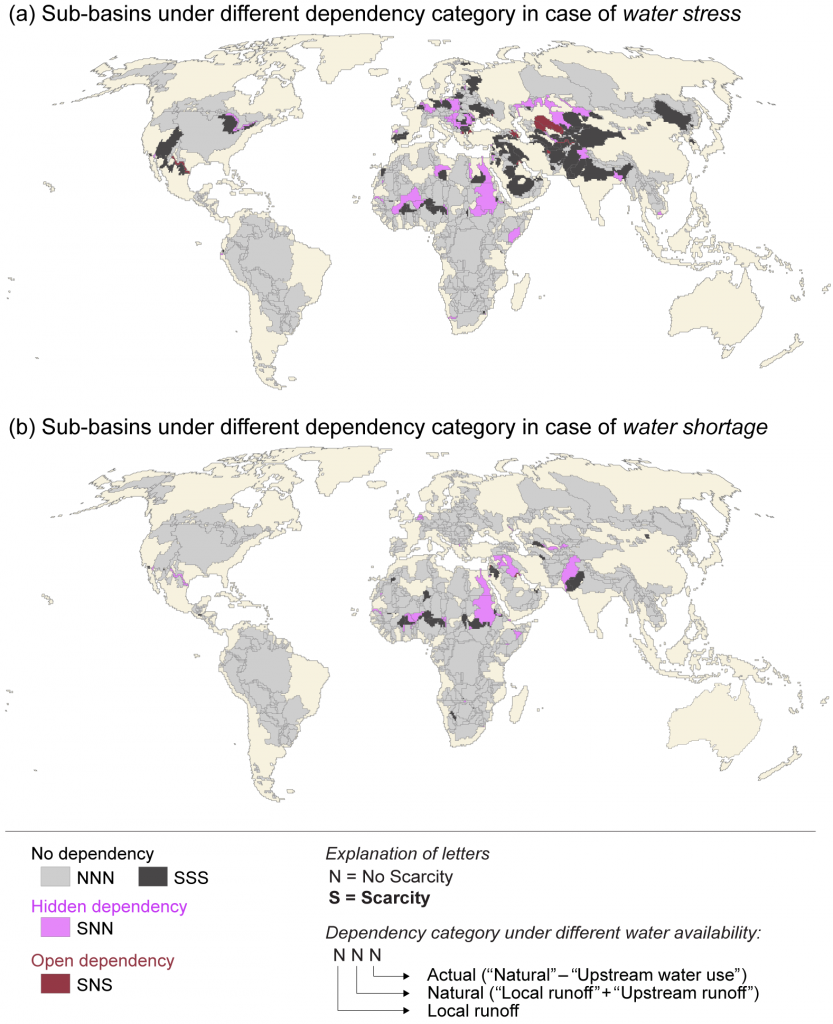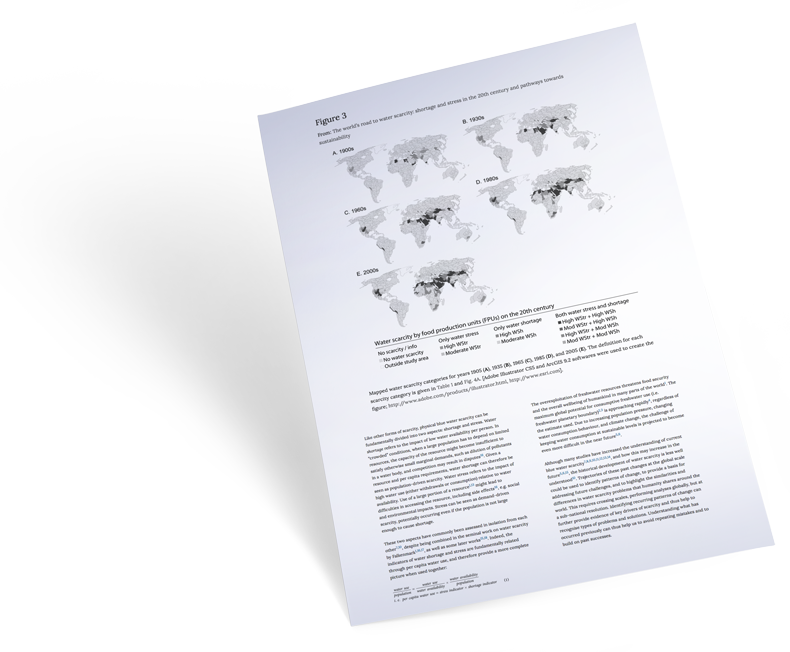In many regions, we can think of water as being either “local" - within our control, or flowing from upstream - and therefore potentially influenced by others. If the local water isn’t sufficient to meet local needs, then the region is dependent on upstream, and the two regions need to share their water
Featured analysis
One way of analysing this is to use scarcity indicators to check whether scarcity occurs if only local runoff was available, vs. actual river discharge. On top of this, we can check if scarcity occurs with natural discharge, and evaluate how much the scarcity indicator changes when discharge changes as a result of upstream water use.
Interpretation:
- If a region doesn’t experience scarcity with actual discharge, but would if they only had runoff, they experience a hidden dependency. They may not be aware that they could experience the impacts of scarcity if upstream inflows change. It is important to put in place water allocation arrangements to make sure upstream inflows remain sufficient in future.
- If a region experiences scarcity with actual discharge, but would not under natural discharge, they experience an open dependency. It is likely to be obvious that negotiation with upstream is needed to maintain water availability, and conflict resolution may be necessary.

- When scarcity does occur, it can be tempting to assign blame, but this isn’t usually useful. Upstream withdrawals do mean there is less water downstream. But on the other hand, upstream dependency only occurs because the downstream region wants to use more water than they have locally available. In practice, the idea of precedence or priority does influence water allocation, both in a prior appropriations regime and in water markets.
- No dependency means that upstream inflows do not influence whether or not a region experiences scarcity. A region where water is scarce even with natural discharge is not considered dependent on inflows. However, the severity of scarcity may still be affected by upstream inflows and water withdrawals, which is why it is useful to look at how much the scarcity indicator changes.

- According to this analysis, in 2010, the majority of transboundary basins were not dependent on upstream inflows, whether to avoid shortage or stress. In some sub-basins, water demand is high enough that they would experience scarcity even if they didn’t have to share water. In other sub-basins, increasing water demand means that upstream dependencies may still emerge in future.
- Some sub-basins do have “hidden dependencies”, including high profile cases such as the Nile and Danube. Water sharing arrangements are key to avoiding potential conflict.
- There are few sub-basins with “open dependencies”. For whatever reason, the potential for scarcity in hidden dependencies has typically not been realised. A prominent exception is the high use of water in Central Asia. This situation may change in future.
Key assumptions:
- These results are strongly dependent on the scarcity indicator and threshold used. See discussion of water stress and shortage for more information.
- Water availability and use can vary significantly between years. Here, we compare water use and population in one year (2010) relative to 30 year average water availability
- Water availability and use is derived from the PCRGlobWB model, and population from the HYDE dataset
Possible future work:
- How upstream water use affects scarcity now and in the future
- Conditions when upstream water dependencies can be a good or bad thing
- Conditions when water sharing arrangements have been effective at avoiding scarcity and conflict

Open for contributions!
This analysis is only a start. Let us know if you would like to be involved in adding work on this subject to the atlas!
Upstream water dependency
Upstream water dependency occurs if water from upstream is needed to avoid scarcity.
Further reading
Submit a topic?
Have you done research related to water scarcity? Send some information for us and we may publish your research in the Water Scarcity Atlas. Please email us at info@waterscarcityatlas.org
Feedback
Want to give us a feedback? Send us an email at info@waterscarcityatlas.org